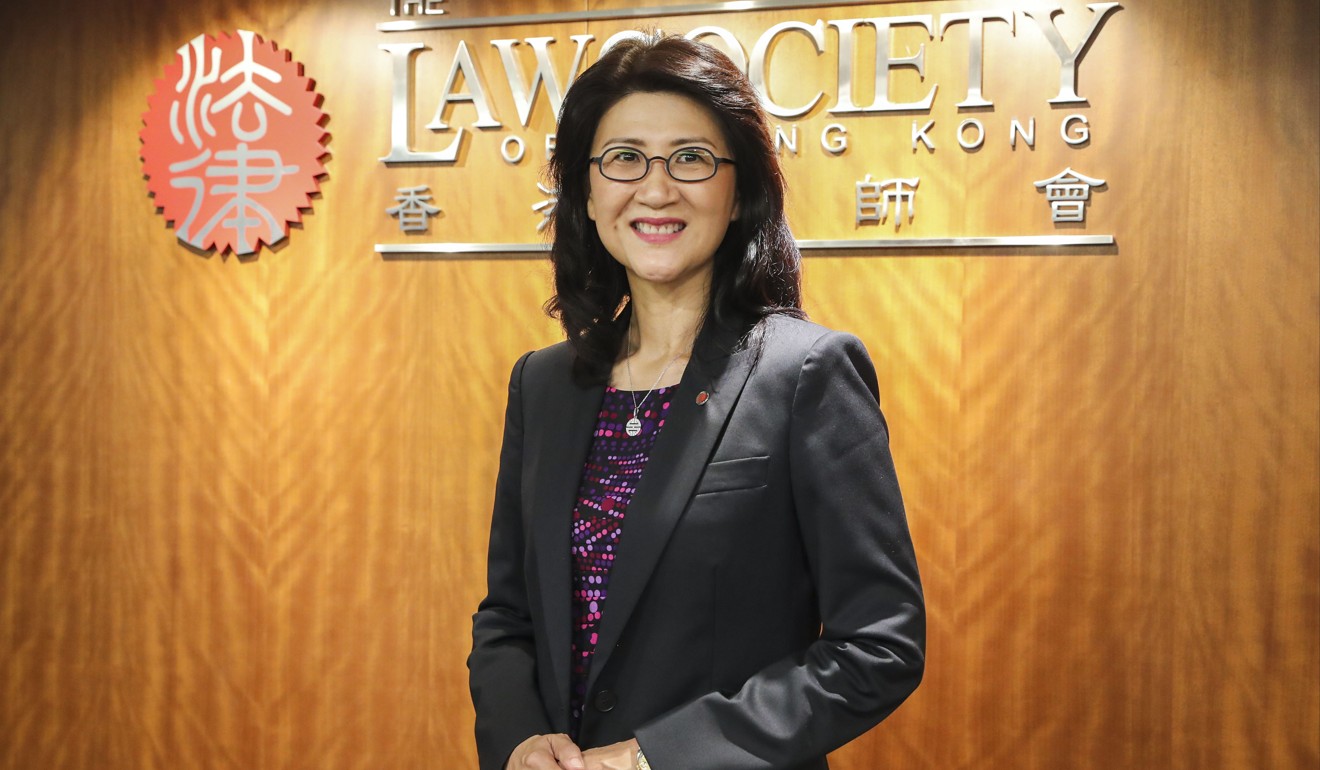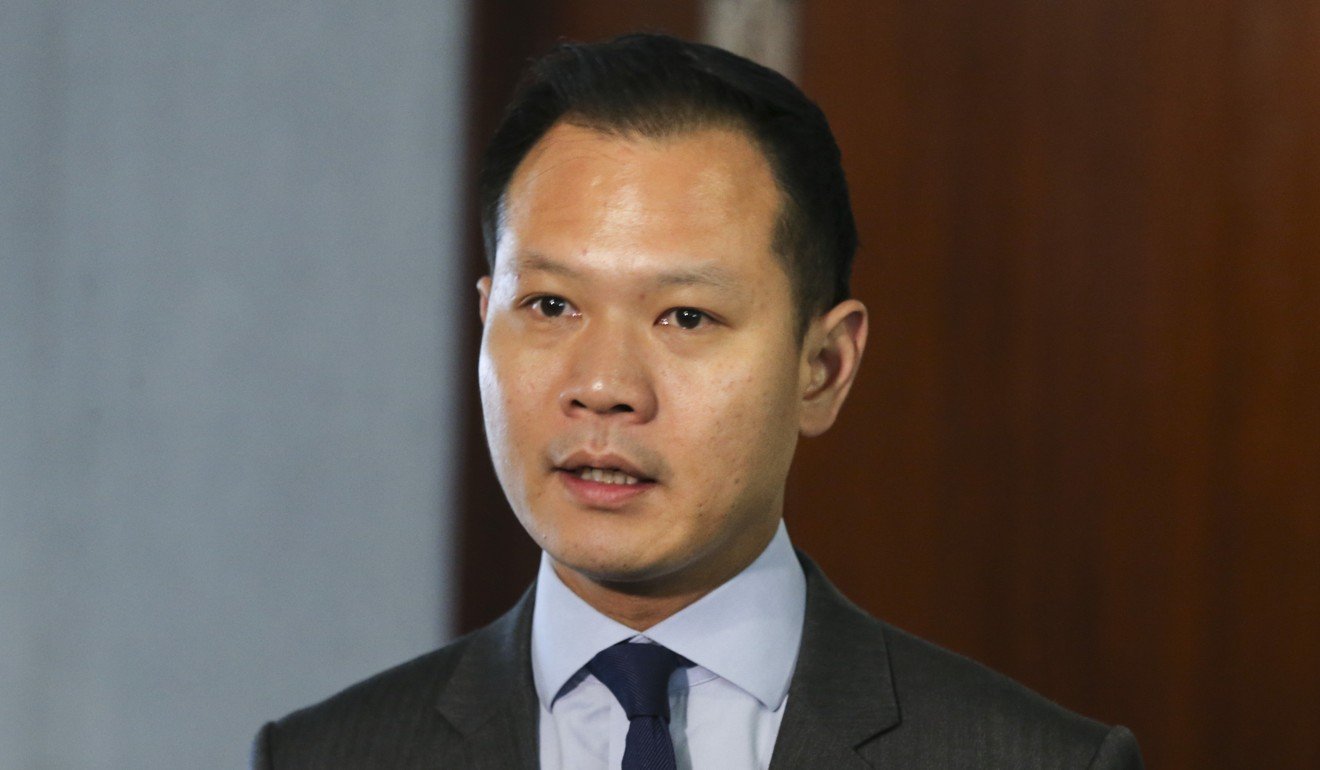
Exclusive | Law Society may plug loophole that allows foreign lawyers to work in Hong Kong, prompting fears of an exodus
Hong Kong’s professional body of solicitors is mulling a change to rules governing the employment of foreign lawyers in the city, in an effort to increase the ratio of local to foreign professionals in the legal sector. Critics of the move worry it will drive qualified lawyers away
Hong Kong’s professional body of solicitors is seeking to plug a loophole that allows foreign and mainland Chinese lawyers to work “back door” on local cases, but this has raised concerns it will only push more of them to go elsewhere, upsetting the balance in the legal profession.
In a letter to consulting law firms earlier this month, the Law Society proposed to restrict the work of lawyers from outside Hong Kong so they would only be able to give legal advice in cases involving the overseas jurisdictions they were registered in.
Solicitors’ group in Hong Kong pushes for new qualifying exam for lawyers
Hong Kong law firms would also have to employ two local lawyers for every one foreign lawyer, increasing the ratio from 1:1.
While foreign and mainland lawyers are not allowed to directly handle Hong Kong cases, locally based law firms get around the rule by employing them for cases that involve overseas and mainland elements.

While the aim of the Law Society’s proposal is to plug the loophole, consultation has extended until the end of this year because of concerns among the legal community.
When it comes to deals involving multiple regions and Hong Kong, the Law Society has hoped to restrict foreign lawyers. This means they would need to secure an express recommendation from a practising Hong Kong lawyer to advise on how Hong Kong law might affect the deal.
It would clarify the rules and deter foreign lawyers from working on local deals
There are 1,500 registered foreign lawyers from 34 jurisdictions working in Hong Kong, accounting for 15 per cent of practising lawyers in the competitive legal market.
Aside from 906 local firms, there are 85 pure foreign firms completely practising non-Hong Kong law and 30 joint associations between Hong Kong and foreign firms. The practices range from business transactions, litigations, to offshore wealth management.
Foreign Lawyers Registration Rules currently bar foreign solicitors from “practising” Hong Kong law.
In practice, however, multiple legal sources confirmed to the Post, some law firms hire foreign lawyers or mainland law graduates to work on Hong Kong finance and corporate matters involving mainland companies with US businesses.
The lawyers or graduates, who have passed qualifying exams in the US, Britain or Australia, would be appointed “adviser” or paralegal and legitimately receive billable expenses as part of the deal.
Such arrangements, common to initial public offerings and corporate matters, may escape being counted as “practising” since it is the local lawyer who signs the legal recommendation.
Two foreign female judges make history with appointments to city’s top court
There are also sometimes economic incentives to hire non-local lawyers.
“A mainland law graduate who has just passed the New York bar exam, might work for HK$20,000 to HK$25,000 a month, which is less than what some firms pay Hong Kong trainees,” said one legal source with knowledge of the Society’s thinking.
“Although it may not entirely stop firms from doing so, it would clarify the rules and deter foreign lawyers from working on local deals.”
Melissa Kaye Pang, president of the Law Society, said there were “grey areas” when dealing with cross-border issues related to Hong Kong, but would not comment specifically whether any back door practice triggers such move.

“We’ve heard of such practices but we have not carried out any studies,” said Pang. Asked whether the proposal might drive foreign lawyers away, Pang stressed the professional body is only “trying to defend the public interest”.
Legal sector lawmaker Dennis Kwok said he is completely on board with defining what foreign lawyers can work on, but cautioned the proposal could be “counterproductive”.
This would lead to an exodus of foreign lawyers to Singapore
“I’m worried this would lead to an exodus of foreign lawyers to Singapore, and that it could hurt Hong Kong’s international reputation as a legal hub,” Kwok said.
He added that some foreign firms that do not deal with any Hong Kong business would also have to follow the new rules, which could hamper job opportunities for the city’s young lawyers.
One partner of a registered foreign firm, who preferred not to be named, slammed the new proposal as limiting the options for lawyers in where they can practise, particularly given Hong Kong’s common law system is similar to that practised in Britain, Australia, New Zealand and Canada.
He gave as an example firms advising on cases involving the British Virgin Islands and Cayman Islands – where lawyers are commonly British qualified and who might be forced to leave Hong Kong under the new rule.
“Singapore currently has the exact same rules [for foreign lawyers] as Hong Kong,” said the partner.
“Were this new law to be introduced, those legal service providers to the British Virgin Islands, Cayman Islands and mainland China would simply move to Singapore. That would have a serious impact on Hong Kong’s standing as a financial centre, where users of financial services are able to obtain legal advice on a same-time, same-day basis.”
Conservative lawyers’ good showing in Hong Kong Law Society election driven by proxy votes
It is understood that, facing a backlash from offshore firms, the Law Society may consider making exceptions for lawyers who may not have to be qualified in the British Virgin Islands and Cayman Islands to work on cases involving those jurisdictions.
On Tuesday, Pang penned a letter to all lawyers, saying that the society agreed to extend the consultation period from November 1 to December 31. Without mentioning foreign firms, she said the governing council has “considered some of the feedback” and stressed that it maintained an open-door policy to foreign lawyers.
Pang earlier told the Post that there is no imminent plan to table the proposal to the Legislative Council, which will require a simple majority vote. The Society has also promised a transition period of at least two years, in the event of a change.

